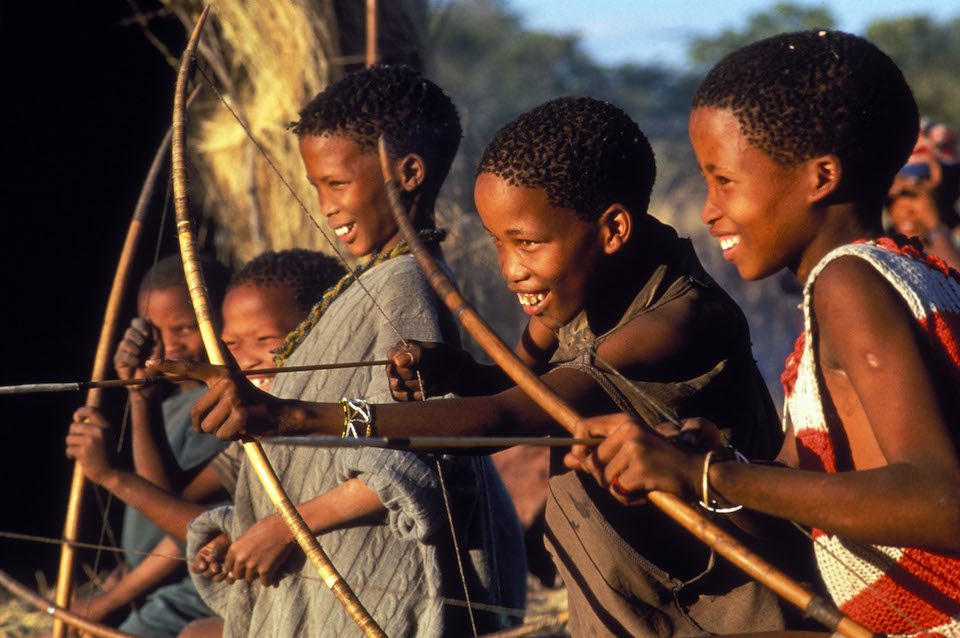Gaston Kabore, one of Africa’s premier filmmakers, chats about African cinema, the politics of representation and Nollywood. He made an appearance at the 3rd annual Africa in Motion Festival in Edinburgh, Autumn 2008.
African cinema is increasingly celebrated for its challenges to Western pre-conceptions, having experienced huge domestic growth over the past few years. One commonly maintained preconception however, is of the continent, as a homogenous whole, and this is something that is both emphasised and discredited in equal measure. Acclaimed filmmaker, Gaston Kabore, is a key cinematic figure and he is keen to stipulate both the variety of the continent and its shared characteristics with, “particularities of different countries living in the same historical momentum.” The intricacies and differences of African cultures manifest, but these can only further inspire one another, “as Africans are travelling around Africa and seeing the differences in their cultures, filmmakers can learn to invent new ways of co-operation.” The third Africa in Motion festival in Edinburgh addresses these issues, the stereotypes and the industry’s growth while nurturing creativity around the continent, encouraging us to look upon their cultures and varieties with curiosity and the abolition of pessimism.
The defining characteristics of African film are for Kabore, more representative of a moment in time rather than specific traits, “we have a real wide range, a real diversity of the films we are making, but historically I think we can define African cinema as at its birth.” As a filmmaker, Kabore always hoped to change commonly gloomy attitudes to the continent and its people, to avoid tragic, stereotypical narratives, but this is not his primary purpose, “we are paying attention to how Africa is seen externally, but the most urgent thing to do is to see how the Africans themselves are becoming self-confident in looking at their world. Sometimes people are pessimistic about Africa, but I say to the young Africans, you should not be distracted by that because you are the one to build your continent and your countries, you cannot expect other people to do the jobs for you.” It is this autonomy, which is of utmost importance for the festival, to create a self-representation and challenge preconceptions of the continent and its cultural diversities as a whole, “I’m not saying Africa is one and unique, there are many different cultures in Africa, I think that we need to see more closely in our own cultures and try to express what makes our singularity.”
The success of Nigeria’s burgeoning film industry, Nollywood, pervades African cinema, and is central in raising awareness of the whole continent’s artistic endeavours, highlighting the need for further innovations throughout Africa, Kabore says: “Today in Nigeria they are developing their own forms of film expression because people in Nigeria want stories told by their own people, dealing with their problems and concerns.” By establishing a film school in his native Burkina, Kabore aims to provide this identification for both ordinary citizens and filmmakers with what occupies their art, to become “more curious about themselves, more curious about their heritage, and then I’m sure that it will effect the way that they are filming, the way that they are portraying their societies.” One problem for this industry in its infancy is Africa’s unwillingness to recognise its own artistic heritage, to use the wealth of inspiration of thousands of years of culture, “to excavate the origins of arts in Africa.” Long-held oral traditions have been consistently addressed by Kabore’s own films, most famously in Wend Kuuni and Buud Yam, and this rich oral history is beginning to be recognised for its 21st century potential, “in tales of imagination and inspiration, we have a lot, we just need the skills.” As a way to nurture cinematic talents, to provide an outlet for young creative Africans and encourage enthusiasm in the manifest cultures of the continent and its people, the festival is holding a student short film contest, judged by Kabore and other renowned industry figures. The initial step in conquering external markets in African cinema is ironically an insular vision of domestic culture. “I do believe personally that universality was born from specificity. You can be a citizen of the world, but you need to be from a land, because you have to bring your own part and then you can be enriched by other creations.” First African filmmakers must credit their historical roots, “be inspired by the music, the sculpture, the clothing arts, the architecture, and the music in Africa, all those different ways of looking to reality.”
The need to showcase along the lines of Nollywood’s success, referencing real people and real cultures, ultimately assumes Africa’s own destiny because these young filmmakers in Kabore’s school are the futures of their own countries, their representations and their creative industries. “If we are not occupying our own spaces, it will be occupied by others. To me it’s a real vital struggle that we are dealing with.”
The Africa in Motion Festival will showcase the best from Africa’s burgeoning film industry, with special events dedicated to animation, Nollywood, and documentaries as well as horror, erotica and experimental work. The Festival promises to be a true showcase of the continent’s growth and variety and Gaston Kabore will be appearing as part of a retrospective of his work. It promises to be a fantastic opportunity to discover a continent, which is drastically under-represented in the Western arts calendar and provides a wealth of opportunity for exploration of fascinating cinematic tales.
The Africa in Motion Festival took place in Edinburgh from 23 October – 2 November 2008.
Pauline Bache




